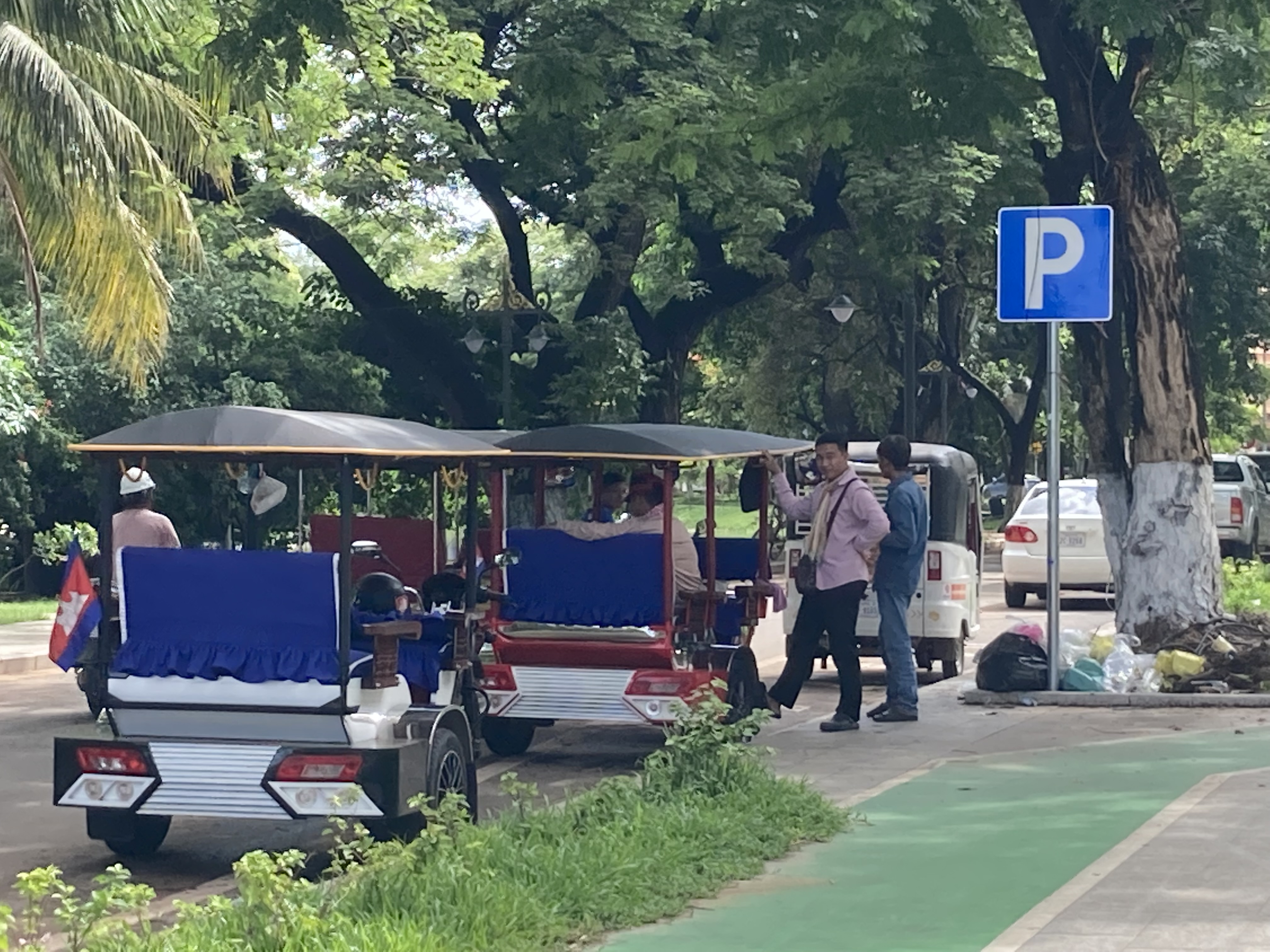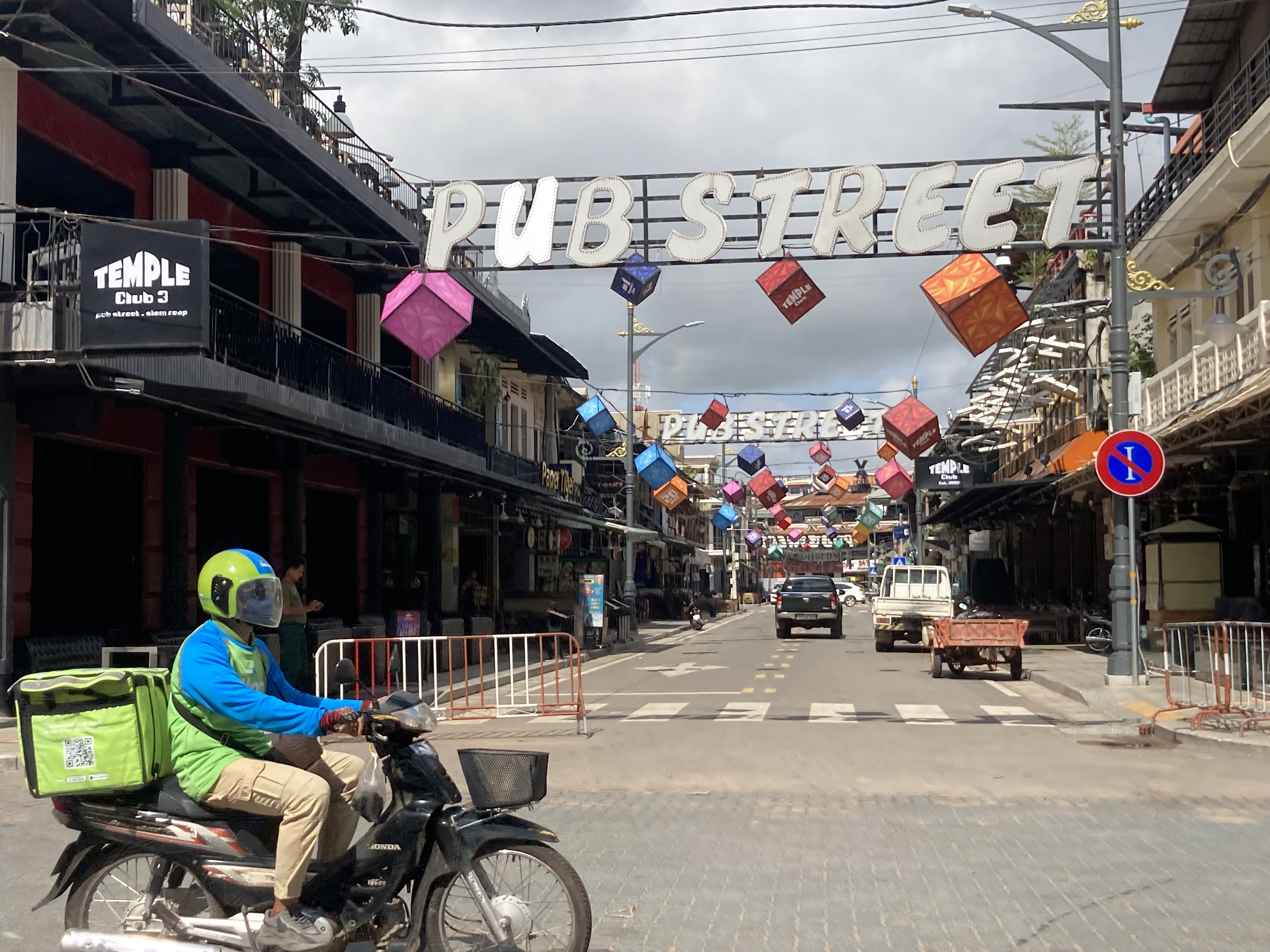
Siem Reap, Cambodia – When Sam’s hard-up relatives needed money to buy a plot of land and start their own business several years ago, they turned to Sathapana Bank in Siem Reap to borrow about $20,000.
Now the Siem Reap tuk-tuk driver and his wife are struggling to make monthly repayments of about $500.
“We do not have the capacity to pay, so we missed payments,” Sam, who asked to use a pseudonym, told Al Jazeera. “We could only pay a small amount of the interest.”
Sam and his family are not alone.
Cambodia’s microfinancing sector, which purports to alleviate poverty by offering financial services to people excluded from traditional banking, is under scrutiny as the watchdog of the International Finance Corporation investigates complaints that the body’s funding of microfinance lenders has caused “grave harm” to local communities.
The Cambodian League for the Promotion and Defense of Human Rights (LICADHO) and Equitable Cambodia (EC), two local advocacy groups, have accused the World Bank’s sister organisation of “reckless investments” that “destroyed lives and wrecked communities”.
The complaint, which the IFC’s Compliance Advisor Ombudsman (CAO) accepted for review earlier this month, claims the financial institution provided $400m to six Cambodian lenders over the last five years without meeting its obligation to “conduct due diligence and supervise projects to ensure compliance with performance standards”.
The lack of due diligence, the NGOs say, has fuelled overindebtedness that has resulted in child labour and families being forced to sell their homes and land.

For many borrowers like Sam and his wife, their financial troubles had begun before they visited a lender.
Prior to the coronavirus pandemic, Sam made from $13-15 per day, and his wife made $2-$5. On an especially good day, the couple could make up to $40 combined.
When tourists stopped arriving during the pandemic, Sam’s income dried up and his wife lost her job in a beauty salon.
“During COVID, I made nothing some days, and some days it was $2.5 to $5.”
Struggling to pay the bank and feed his family at the same time, Sam, 33, went to Thailand to work illegally in 2020. But within a few months of getting a job at a fruit factory, the work dried up and he was forced to return home.
“The bank only comes to pressure us for money,” he said, adding that the bank has suggested he sell some land he owns. “They don’t care where the money is.”
“They discussed with us, took photos of the land, and advertised to see if anyone is interested, so we could sell and pay back the bank,” Sam added.
Many of Sam’s neighbours are in a similar situation.

Ta Nou, a village chief in Siem Reap, said that about 90 percent of residences in his community of about 600 people had borrowed money from a microlending institution.
Some borrowers have since gone to work in Thailand, he said, with one family putting their house on sale to cover their debts.
“I feel sorry for and pity them,” Nou, who asked to use a pseudonym, told Al Jazeera.
Since 2019 LICADHO, EC and other NGOs have been investigating the problem of excessive indebtedness in Cambodia.
“The serious human rights violations caused by the sector have been ongoing for years, and we hope the detailed information provided in the complaint will serve as a wake-up call to the IFC,” said Eang Vuthy, executive director of Equitable Cambodia, said in the statement in May.
In their CAO case, LICADHO and EC have the option of choosing a dispute resolution process or a compliance appraisal, which would lead to further investigation into the allegations.
The IFC told Al Jazeera the microfinance sector in Cambodia has boosted incomes, created jobs and helped people expand their businesses, but acknowledged “legitimate concerns about indebtedness”.
“In Cambodia, we have worked with the National Bank of Cambodia to set up a credit bureau to help avoid situations of multiple borrowings and unsustainable debt levels and to provide information that helps stamp out aggressive lending practices,” a spokesperson said.
“IFC welcomes a productive dialogue with the CAO and other stakeholders if the complaint proceeds as part of the CAO’s process.”
‘Zero-tolerance policy’
Kaing Tongngy, a spokesman for the Cambodian Microfinance Association (CMA), said that the association has a “zero-tolerance policy for any malpractice by our members” and is looking into the complaint.
“Any breach of the code of conduct may result in termination or even worse,” he said. “CMA is working with our members and stakeholders to strengthen mechanisms and monitor their performance to ensure they fully adhere to the codes of conduct and respect the rights of their customers.”
Sok Voeun, chief executive officer of LOLC Cambodia, one of the six financial institutions named in the CAO complaint, said the lender has written off more than $4.5m in debt for 4,600 hardship cases.
“LOLC is aware of the complaints submitted to the International Finance Corporation and welcomes the opportunity to support the investigation by their Compliance Advisor Ombudsman (CAO),” he told Al Jazeera.
“We are confident the investigation will conclude that responsible microfinance providers such as LOLC have an important role to play in supporting economic development and promoting financial inclusion in countries like Cambodia where many microentrepreneurs would otherwise be forced to rely on unregulated money lenders.”
Another lender named in the complaint, ACLEDA Bank, described the report filed by the two NGOs as “too politicised and baseless”.
“It’s routinely issued before each election, I noted,” In Channy, president and group managing director, told Al Jazeera. “It lacks [professionalism], and the researchers never understand the best practices of banking and finance in accordance with the law on banking and finance in Cambodia.”
The other four lenders did not respond to inquiries or could not be reached for comment.

Milford Bateman, a visiting professor of economics at Juraj Dobrila University of Pula in Croatia, said microfinance institutions around the world have lost touch with reality.
“The MFIs have everywhere around the world lost touch with their pro-poor developmental roots as a result of being privatised, commercialised, and especially bought up by foreign investors keen to maximise profits in a short period of time,” Bateman told Al Jazeera.
Naly Pilorge, outreach director of LICADHO, said predatory microlenders have created an “over-indebtedness crisis” in Cambodia.
“Because so many of these overinflated microloans are collateralised with borrowers’ land titles, they often are pressured to resort to harmful practices such as child labour, migration, and in some cases the sale of land to repay these microloans,” Pilorge said.
“What we want from all parties – the MFIs and banks, investors such as the IFC, and the Cambodian government – is for Cambodia’s microloan sector to do no harm by respecting the human rights of all borrowers.”
For Sam and his wife, any change in the sector will come too late.
Resigned to not being able to repay their bank, the couple has decided to sell their land.
“I’ve put the land on sale,” he said. “If anyone is interested, they can have a look at the land.”







